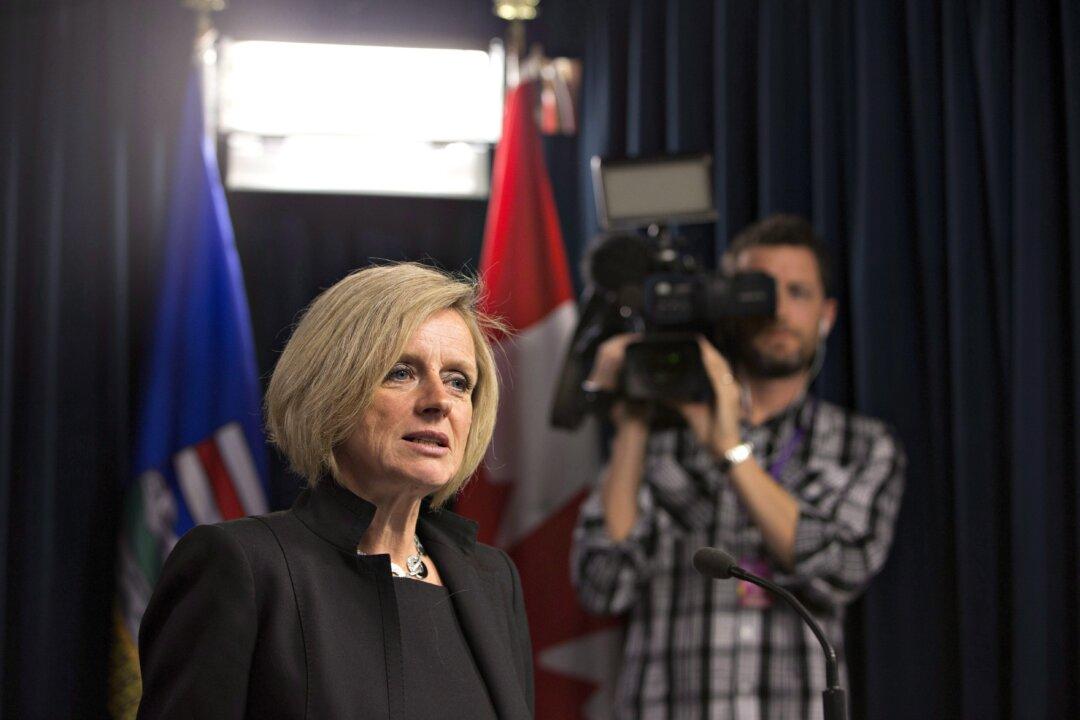People could be allowed back to Fort McMurray as early as June 1
EDMONTON—The Alberta government says people from the fire-ravaged city of Fort McMurray could return home starting on June 1 if conditions are deemed to be safe.
Premier Rachel Notley said May 18 that the re-entry will be done in stages and will be voluntary.
Notley said the conditions include no threat of wildfire or from smoke. Basic emergency, medical, and other services such as water, electricity, and natural gas must be available. Hazardous areas within the community must also be made secure, she said.
More than 80,000 people fled the city due to the wildfire that continues to burn in northeastern Alberta.
Commons erupts as opposition accuses Trudeau of elbowing female NDP MP
OTTAWA—The House of Commons erupted in pandemonium on May 18 as opposition MPs angrily accused Prime Minister Justin Trudeau of “manhandling” the Conservative whip and elbowing a female NDP MP in the chest prior to a key vote on limiting debate on the assisted suicide bill.
Quebec MP Ruth Ellen Brosseau said she was so shocked by the encounter that she had to leave the chamber as mayhem descended on the Commons floor, with Trudeau at one point in a face-to-face encounter with NDP Leader Tom Mulcair and MPs scrumming around them like kids witnessing a schoolyard tussle.
Footage from the Commons television feed showed Trudeau wading into a clutch of MPs, mostly New Democrats, and pulling Opposition whip Gordon Brown through the crowd in an effort to get the vote started—a no-no in parliamentary procedure.
As Trudeau turns around to pull Brown through, Brosseau comes into view, discomfort evident on her face as Trudeau pushes past her, forcing her against an adjacent desk.
Trudeau issued an abject apology, even amid the catcalls and protests of the opposition benches, saying he was just trying to help the opposition whip get to his seat. He insisted he never intended to hurt anyone.
Green party Leader Elizabeth May, whose seat in the House gave her a ringside seat for the encounter, called for calm at one point—and suggested that the NDP MPs may have been milling about on the floor in order to delay the vote. She said from her perspective, Trudeau’s contact with Brousseau was unintentional.
Cities should stop building in disaster prone areas: Insurance bureau head
OTTAWA—The head of the Insurance Bureau of Canada says local governments need to stop developments on flood plains or near fire-prone boreal forests to prevent widespread damage from future natural disasters.
Don Forgeron says the devastating Fort McMurray fire will be the costliest natural disaster in Canadian history, costing insurers somewhere between $3 billion and $9 billion.
He says the federal government needs to strategically invest the green infrastructure money it has set aside in the budget to help communities combat the effects of climate change and reduce disaster relief payments to provinces.
Forgeron made the comments during a luncheon speech to the Economic Club of Canada.
Lyme disease cases rising, climate change cited as a probable factor
An Ottawa conference on Lyme disease has been told the tick-borne illness is on the rise in Canada and global warming is likely partly responsible.
Federal Health Minister Jane Philpott said climate change is believed to be one of the major factors driving the increase in cases of Lyme disease across the country in recent years.
Lyme is caused by a bacteria that can be passed to humans through the bite of an infected black-legged tick. Symptoms include fever, headache, fatigue, and often, a characteristic bull’s-eye rash at the site of the bite.
Canada’s chief public health officer Dr. Gregory Taylor said there were 700 case of Lyme disease reported in 2015, up from 140 in 2009.
Giving babies foods like peanuts before age 1 cuts risk of sensitization: Study
TORONTO—A study has found that babies fed cow’s milk, eggs, and peanuts before their first birthday are less likely to develop sensitization to those foods.
Led by McMaster University in Hamilton, the study showed that early introduction of eggs was especially beneficial, as it appeared to decrease the risk of sensitization to all three foods.
Lead author Maxwell Tran says food sensitization is not the same as developing a full-blown allergy, but it can help set the table for the more serious reaction.
Researchers looked at the timing of food introduction in more than 1,400 children up to a year old as part of the Canadian Healthy Infant Longitudinal Development study.
With files from The Canadian Press





